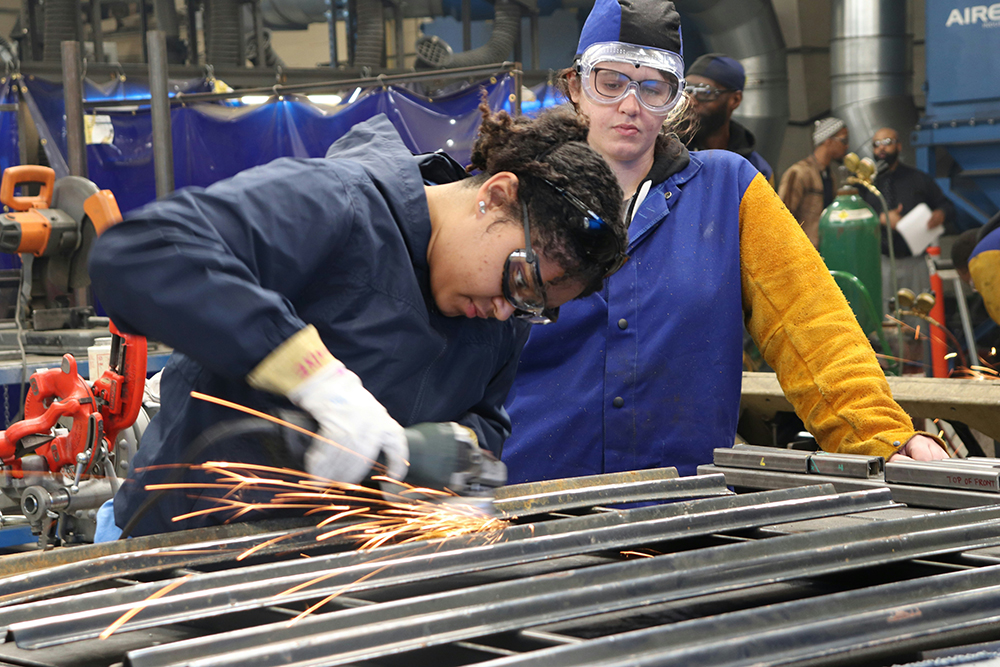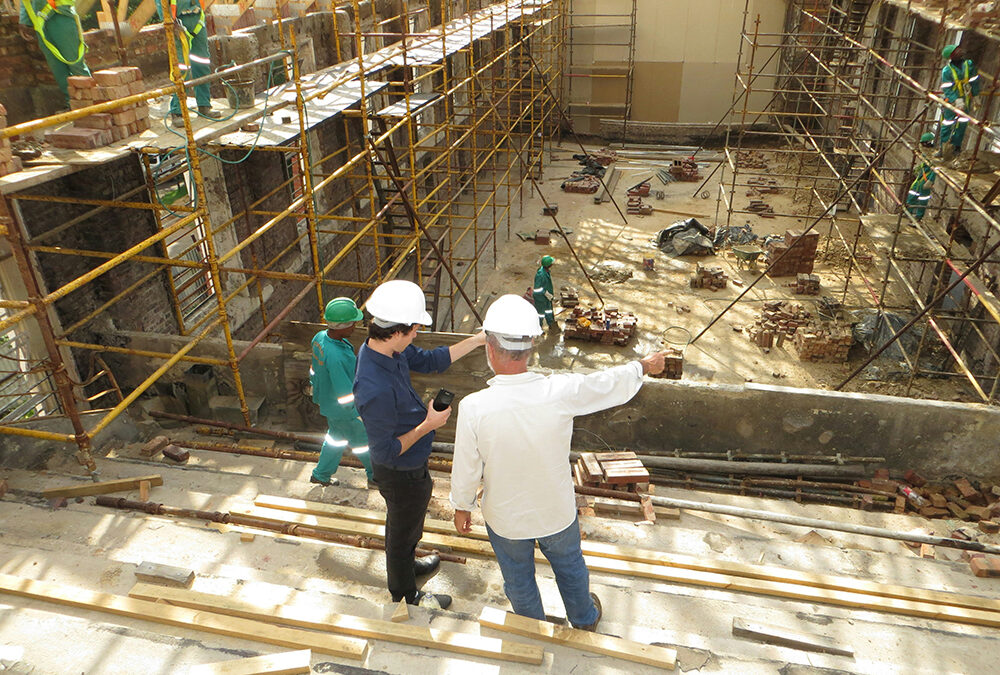
by Tony Gavin | Apr 23, 2025 | Uncategorized
ANZAC Day, observed annually on April 25th, is a day of remembrance for those who served and sacrificed in the Australian and New Zealand Army Corps during World War I and subsequent conflicts. It’s a significant occasion that invites reflection on values such as courage, sacrifice, and camaraderie. For companies, ANZAC Day presents a unique opportunity to engage employees, strengthen organizational culture, and demonstrate corporate social responsibility. This article explores meaningful ways companies can observe ANZAC Day while fostering unity and remembrance among their staff.
Understanding the Significance of ANZAC Day
ANZAC Day honors the bravery of soldiers and highlights the collective spirit of resilience and unity displayed during challenging times. By acknowledging its importance, organizations can create a shared sense of purpose and respect among employees. Observing ANZAC Day meaningfully contributes to developing a strong corporate culture that values history, community, and empathy.
Strategies for Meaningful Observation
1. Organize a Commemorative Service
One of the most impactful ways for companies to observe ANZAC Day is by organizing a commemorative service. This could take the form of a morning service that includes a minute of silence, the playing of the Last Post, or the sharing of historical narratives related to ANZAC Day. Inviting speakers—such as veterans or historians—can provide personal insights and foster a deeper understanding of the sacrifices made. This gathering encourages reflection and displays the organization’s respect for those who served.
2. Encourage Employee Participation in ANZAC Day Events
Many communities hold local ANZAC Day marches and ceremonies. Companies can encourage employees to participate in these events, perhaps by allowing time off to attend or organizing a group to march together. Participation fosters a sense of unity within the team and reinforces communal values. Supporting employees in engaging with their local communities can enhance company morale and strengthen team relationships.
3. Create Educational Workshops and Discussions
Education is a powerful tool for remembrance. Companies can facilitate workshops or discussions on the significance of ANZAC Day, exploring topics like the historical context, the values exemplified by ANZAC soldiers, and the importance of resilience in the workplace. This initiative not only promotes awareness but also provides employees with an opportunity to express their thoughts and feelings about the day, creating a platform for dialogue and connection.
4. Support Veteran Charities and Initiatives
Demonstrating corporate social responsibility on ANZAC Day can also include supporting charities or initiatives that assist veterans and their families. Companies can organize fundraising events, donations, or volunteer opportunities to contribute to organizations that provide support to those who have served. This action aligns the company’s values with community support and enhances the impact of ANZAC Day beyond mere observance.
5. Reflect Company Values through Strategic Messaging
ANZAC Day offers an ideal opportunity for companies to reflect on their values through strategic messaging. Leaders can communicate the significance of the day, emphasizing themes of courage, teamwork, and sacrifice in their internal communications. This messaging can be spread through newsletters, social media platforms, or during all-hands meetings, reinforcing the alignment of the company’s mission with historical values.
Conclusion
Observing ANZAC Day meaningfully allows companies to cultivate a culture of unity and remembrance while honoring the sacrifices made by individuals in service to their country. By organizing commemorative services, encouraging participation in local events, facilitating educational discussions, supporting veteran initiatives, and reflecting company values in communication, organizations can create a lasting impact. Embracing the spirit of ANZAC Day deepens employees’ understanding and appreciation of history while strengthening their connection to the company and one another. In doing so, organizations can uphold the legacy of ANZAC Day while promoting a more empathetic and engaged workplace.

by Tony Gavin | Apr 18, 2025 | Uncategorized
Every year, Good Friday and Easter celebrate profound themes of sacrifice, renewal, and hope. While primarily religious holidays, the values they embody resonate deeply within the corporate world. Companies can draw inspiration from these holidays to foster a strong organizational culture anchored in compassion, integrity, and community. This article explores how the messages of Good Friday and Easter can inspire corporate values and enhance workplace dynamics beyond the holiday season.
Understanding the Themes of Good Friday and Easter
Good Friday commemorates the crucifixion of Jesus Christ, symbolizing sacrifice and selflessness. It serves as a reminder of the profound impact that courage and commitment can have on the greater good. Easter, on the other hand, embodies themes of resurrection and renewal, signifying new beginnings and the power of hope. Together, these holidays encourage introspection, empathy, and a sense of community that can significantly influence corporate values.
Inspiring Corporate Values from Good Friday and Easter
1. Compassion and Empathy
The themes of sacrifice and empathy prevalent during Good Friday and Easter provide a strong foundation for cultivating compassion within organizations. Companies can encourage employees to support one another, recognizing that everyone faces personal challenges and struggles. By promoting a culture of understanding, leaders can create an environment where employees feel valued and supported. This emotional connection fosters collaboration and enhances team dynamics, ultimately improving productivity and morale.
2. Integrity in Actions
Good Friday’s focus on sacrifice highlights the importance of integrity in business practices. Companies can adopt ethical standards by ensuring transparency, honesty, and accountability in all operations. Leaders who demonstrate integrity instill trust within their teams and with customers. Such dedication to ethical behavior not only enhances the company’s reputation but also reinforces a culture where employees feel empowered to act with integrity in their roles.
3. Commitment to Community
Easter encourages a spirit of renewal and giving back, reminding companies of their role in the broader community. Organizations can develop corporate social responsibility (CSR) initiatives centered on community engagement and philanthropy. Encouraging employees to volunteer, support local charities, or participate in community events fosters a culture of giving back. This commitment not only helps those in need but also strengthens the company’s bond with the community, enhancing its reputation and impact.
4. Embracing Change and Innovation
The theme of resurrection associated with Easter encourages organizations to embrace change and innovation. Companies that acknowledge the need for adaptability can remain competitive in a rapidly evolving marketplace. By fostering a culture that encourages creativity and risk-taking, organizations can inspire employees to propose innovative ideas and solutions. Embracing change not only leads to growth but also instills a sense of ownership among employees, making them feel more connected to the company’s vision.
5. Focus on Well-being and Renewal
Both Good Friday and Easter emphasize the importance of mental and emotional well-being. Companies can take this message to heart by prioritizing employee wellness through comprehensive programs that address mental health, work-life balance, and stress management. Programs that promote renewal through mindfulness, physical fitness, and flexibility can significantly increase job satisfaction and employee retention. A focus on well-being creates a happier, more engaged workforce, ultimately benefiting the entire organization.
Conclusion
Good Friday and Easter offer valuable lessons that extend beyond their religious significance, serving as powerful inspirations for corporate values. By cultivating compassion, integrity, community involvement, adaptability, and well-being within their organizations, companies can create supportive, dynamic workplaces that transcend traditional business practices. These holidays remind us that the essence of leadership lies in nurturing relationships, fostering innovation, and committing to ethical principles. As organizations strive to embody these values, they not only enhance workplace culture but also contribute positively to the society around them.

by Tony Gavin | Apr 14, 2025 | Uncategorized
In recent years, there has been a notable shift in the labor market toward skilled trades, reflecting changing economic conditions, consumer preferences, and technological advancements. As industries evolve, the demand for skilled tradespeople has grown, impacting the service sector in significant ways. This article explores key trends affecting the shift toward skilled trades and their implications for the service industry.
-
Increasing Demand for Skilled Labor
One of the primary drivers of the shift toward skilled trades is the burgeoning demand for skilled labor across various sectors. As populations grow and urban development accelerates, industries such as construction, plumbing, electrical work, and HVAC (heating, ventilation, and air conditioning) are experiencing heightened demand for qualified tradespeople. According to labor market reports, skilled trades are projected to see strong job growth in the coming years, making them a stable career choice.
Moreover, the aging workforce in many trades has resulted in a shortage of skilled labor. As experienced tradespeople retire, a gap is created that younger workers must fill. Encouraging the next generation to pursue careers in the skilled trades is essential. Many educational institutions and trades organizations are actively promoting the value of vocational training and trade skills to attract new talent to these essential professions.
-
Emphasis on Vocational Education and Training
As awareness of the skills gap grows, more emphasis is being placed on vocational education and training (VET) programs. These programs provide hands-on experience and training that prepare individuals for careers in skilled trades. In 2025, we can expect to see a continued expansion of VET initiatives, partnerships between schools and industries, and incentives for students to pursue trades as a viable career path.
Apprenticeship programs are also gaining popularity, allowing participants to earn while they learn. These programs provide valuable practical experience and foster mentorship relationships between experienced tradespeople and newcomers, ensuring that essential skills are passed down. As educational systems adapt to the changing landscape, VET programs will play a crucial role in bridging the skills gap.
-
Embracing Technological Advancements
The integration of technology in skilled trades is reshaping the service industry. Advancements in tools, equipment, and techniques have transformed how tradespeople operate. For instance, the use of drones for surveying in construction, advanced software for design in electrical and plumbing work, and smart technologies in HVAC systems are becoming commonplace.
As technology continues to evolve, skilled tradespeople will need to adapt by acquiring new technical skills. Ongoing training and upskilling will be essential to ensure workers remain competitive in a rapidly changing landscape. This trend highlights the importance of lifelong learning within the skilled trades, as professionals must stay abreast of new tools and techniques in order to provide quality service.
-
A Shift in Perceptions About Skilled Trades
Another significant trend is the changing perception of skilled trades among young people and their families. Historically, four-year college degrees were often seen as the primary path to success, leaving skilled trades undervalued. However, as awareness of the financial stability, job security, and fulfilling careers that skilled trades can provide increases, this perception is beginning to shift.
Public awareness campaigns and success stories of tradespeople achieving financial independence and job satisfaction are helping to reshape the narrative around vocational careers. As more young individuals recognize the value of pursuing skilled trades, we can expect an influx of talent into these essential fields, further bolstering the service industry.
Conclusion
The shift toward skilled trades is reshaping the service industry in several key ways, from increasing demand for skilled labor and expanding vocational education programs to embracing technological advancements and altering perceptions about trades careers. As the industry evolves, it is essential to continue fostering a culture that values skilled labor, ensuring a robust and stable workforce for the future. By addressing the challenges and leveraging the opportunities within the skilled trades, we can secure a prosperous path forward for both individuals and the service industry as a whole.

by Tony Gavin | Apr 8, 2025 | Uncategorized
As we move further into 2025, Australia’s construction industry is witnessing a remarkable boom driven by population growth, urbanization, and technological advancements. With an influx of people relocating to urban areas, the demand for residential, commercial, and infrastructure projects is at an all-time high. In this article, we will explore the key trends reshaping the Australian construction sector, focusing on sustainability, technology integration, and a shift toward modular building practices.
- Sustainability and Green Building Practices
Sustainability remains a cornerstone of the construction boom in Australia. As the government prioritizes environmental initiatives, many developers are adopting green building practices to comply with regulatory requirements and meet the expectations of eco-conscious consumers. In 2025, we can expect an increased focus on energy-efficient buildings that minimize carbon footprints while maximizing resource efficiency.
Innovative sustainable materials, such as recycled steel, rammed earth, and bamboo, are gaining popularity in new construction projects. Furthermore, energy-efficient designs featuring passive solar heating, improved insulation, and smart technology are becoming standard in both residential and commercial developments. As a result, buildings in Australia are not only enhancing environmental performance but are also providing long-term savings on energy costs.
-
Embracing Technology and Digital Transformation
The adoption of technology in construction is rapidly evolving as companies seek to enhance productivity and reduce costs. Building Information Modeling (BIM), drones, and 3D printing are redefining traditional construction practices. In 2025, BIM is expected to be a standard tool in project planning and execution, allowing for better collaboration among stakeholders and improved accuracy in project timelines and budgets.
Drones are being increasingly utilized for site surveying and monitoring, providing real-time data that enhances decision-making and construction efficiency. Additionally, 3D printing is revolutionizing the production of building components, enabling faster construction times and reduced labor costs. The advancements in Construction Technology (ConTech) are transforming the industry, allowing projects to be completed more efficiently and sustainably.
-
Modular and Prefabricated Construction
Modular construction is gaining momentum as a viable alternative to traditional building methods. This approach involves assembling components in a factory setting and transporting them to the construction site for quick assembly. In 2025, we expect to see a significant increase in the use of prefabricated structures, particularly in housing and commercial developments.
This method reduces construction waste and labor costs, offering more predictable timelines for project completion. As Australia faces a housing affordability crisis, modular construction is emerging as a solution to quickly deliver affordable housing options to urban areas. By streamlining the building process, modular techniques contribute to addressing the housing shortage while promoting sustainability.
-
Workforce Development and Skills Training
As technological advancements reshape the construction landscape, the need for a skilled workforce has never been greater. In 2025, Australia’s construction industry must address skills shortages by investing in training programs tailored to the demands of modern construction practices. Industry stakeholders are increasingly collaborating with educational institutions to equip the workforce with skills in digital technology, sustainable practices, and project management.
Additionally, diversity and inclusion are becoming focal points in workforce development, with initiatives aimed at attracting underrepresented groups into the industry. By fostering a diverse and skilled workforce, Australia can ensure the longevity and growth of its construction sector.
Conclusion
Australia’s construction boom in 2025 is characterized by a focus on sustainability, technological integration, and modular construction practices. As the industry embraces these trends, stakeholders will need to adapt to changing consumer preferences and regulatory requirements. By investing in innovative practices and a skilled workforce, Australia can build a resilient construction sector capable of meeting the challenges of the future while enhancing the quality of life for its residents. The ongoing evolution of construction practices will undoubtedly shape Australia’s urban landscape for years to come.

by Tony Gavin | Apr 2, 2025 | Uncategorized
In recent years, the gig economy has experienced exponential growth, offering individuals an array of flexible work opportunities that deviate from traditional employment. Characterized by short-term contracts or freelance work, the gig economy encompasses various sectors, including technology, transportation, creative services, and more. While it provides attractive benefits, the gig economy also presents several challenges that workers must navigate. This article explores the opportunities and challenges within the gig economy, highlighting critical aspects for workers and employers alike.
Opportunities in the Gig Economy
One of the main advantages of the gig economy is the flexibility it offers. Gig workers can choose when, where, and how much they work, making it an appealing option for those seeking a better work-life balance. Whether a parent balancing childcare, a student managing coursework, or someone pursuing passions while earning an income, gig work allows for customization of schedules.
Moreover, the gig economy promotes access to diverse job opportunities. Individuals can tap into unique skill sets and monetize hobbies or talents. For instance, graphic designers can offer their services on freelance platforms, while drivers can earn money through rideshare services. This variety not only helps workers find jobs that match their skills but also opens avenues for continual learning and professional development.
Financial incentives are another prominent aspect of the gig economy. Many gig workers report higher potential earnings compared to traditional jobs, primarily due to the ability to set their rates and take on multiple projects simultaneously. For skilled professionals, this can translate to a lucrative career path if appropriately managed.
Additionally, the gig economy can lead to innovation and entrepreneurship. Many gig workers transition into full-time entrepreneurs, using their freelance experience to build businesses. This trend fosters creativity and promotes economic growth, as more individuals enter the workforce with innovative solutions and services.
Challenges in the Gig Economy
Despite its many advantages, the gig economy poses several challenges that workers must confront. Job security is often a significant concern. Gig workers typically lack the benefits afforded to traditional employees, such as health insurance, retirement plans, and paid leave. This absence of stability can leave gig workers vulnerable, especially in times of economic downturns or personal crises.
Another challenge is the unpredictability of income. Many gig workers find it difficult to estimate their earnings from week to week due to fluctuating demand for their services. Without a stable paycheck, financial planning can become a daunting task, leading to stress and uncertainty.
Furthermore, the gig economy can also foster isolation. Many gig workers operate independently, which can limit networking opportunities and camaraderie that traditional office environments often provide. This isolation may hinder professional growth and create a sense of disconnection from the broader workforce community.
Additionally, navigating legal and tax obligations can be overwhelming for gig workers. As independent contractors, they are responsible for managing their taxes, which can be complicated and time-consuming. A lack of knowledge about these responsibilities can lead to financial pitfalls.
Conclusion
Navigating the gig economy requires a nuanced understanding of its opportunities and challenges. While flexibility, diverse job options, and potential higher earnings present attractive prospects, workers must also contend with job insecurity, fluctuating incomes, and the complexities of self-employment. As the gig economy continues to evolve, individuals must empower themselves with knowledge and resources to make informed decisions about their careers. By balancing the benefits against the challenges, workers can effectively thrive in this dynamic and rapidly changing landscape.

by Tony Gavin | Mar 25, 2025 | Uncategorized
As the awareness of climate change and environmental degradation rises, sustainable building practices have become essential in the construction industry. Green construction embodies a holistic approach that focuses on minimizing ecological impact, promoting energy efficiency, and ensuring indoor environmental quality. As technology and materials continue to evolve, innovative sustainable building practices are transforming how we design, construct, and operate buildings. This article delves into the latest trends in green construction and their implications for the future.
The Rise of Sustainable Building Materials
One of the most significant advancements in sustainable building practices is the development and increased use of eco-friendly materials. Architects and builders are now utilizing recycled, reclaimed, and rapidly renewable materials to reduce waste and lower their carbon footprint. For example, bamboo, a highly renewable resource, is being used for flooring and structural components due to its strength and rapid growth rate. Additionally, using reclaimed wood reduces the need for new lumber, making it a sustainable choice for various construction applications.
Innovative materials like hempcrete and mycelium (the root structure of fungi) are gaining traction in sustainable building. Hempcrete offers excellent insulation properties and is carbon-negative, while mycelium is biodegradable and can be used to create insulation panels. These materials not only reduce environmental impact but also promote healthier indoor air quality.
Energy Efficiency through Smart Technologies
Smart building technology is revolutionizing how energy is consumed in construction. Integrating Internet of Things (IoT) devices allows real-time monitoring and management of energy use. For instance, smart thermostats, energy-efficient lighting, and automated shading systems enable building owners to optimize energy consumption without sacrificing comfort.
Moreover, building energy modeling (BEM) is becoming a standard practice in green construction. BEM tools simulate a building’s energy performance during the design phase, allowing architects and engineers to identify opportunities for improving efficiency before construction begins. This proactive approach contributes to reduced operational costs and lower greenhouse gas emissions.
Water Conservation Practices
Water conservation is another critical aspect of sustainable building practices. Innovative systems for rainwater harvesting, greywater recycling, and permeable paving are gaining popularity in green construction projects. Rainwater harvesting captures and utilizes rainwater for irrigation and non-potable indoor uses, significantly reducing dependence on municipal water systems.
Moreover, low-flow fixtures and water-efficient landscaping contribute to minimizing water usage in buildings. These practices not only conserve this precious resource but also decrease the overall cost of utilities for homeowners and businesses alike.
Green Certifications and Standards
As sustainable building practices evolve, so do certification programs and standards aimed at promoting and recognizing green construction. Organizations like the U.S. Green Building Council (USGBC) offer LEED (Leadership in Energy and Environmental Design) certification, which provides a framework for developing sustainable buildings. Other certifications, such as BREEAM (Building Research Establishment Environmental Assessment Method) and Living Building Challenge, assess buildings based on their environmental performance and sustainability metrics.
These certifications gain significance as consumers and tenants increasingly prefer sustainable options. Buildings that obtain such certifications often experience higher occupancy rates and increased property values, making green construction a profitable venture for developers.
Conclusion
Sustainable building practices are revolutionizing the construction industry, focusing on minimizing environmental impact while enhancing energy efficiency and overall quality of life. Innovations in materials, smart technologies, water conservation methods, and green certifications pave the way for a more sustainable future. As the demand for eco-friendly buildings continues to grow, embracing these practices is not just beneficial for the environment but also essential for the long-term viability of the construction industry. By continuously evolving and adopting green practices, we can build a better world for future generations.







Recent Comments